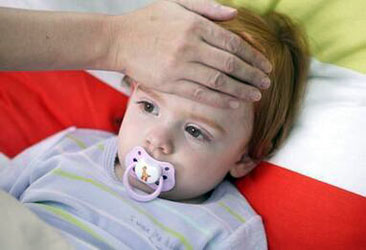 Pneumonia
Pneumonia is an infection of the lungs that is caused by bacteria, viruses, fungi, or parasites. It is characterized primarily by inflammation of the alveoli in the lungs or by alveoli that are filled with fluid (alveoli are microscopic sacs in the lungs that absorb oxygen). At times a very serious condition, pneumonia can make a person very sick or even cause death. Although the disease can occur in young and healthy people, it is most dangerous for older adults, babies, and people with other diseases or impaired immune systems.
Here are some key points about pneumonia. More detail and supporting information is in the main article.
-- Pneumonia is an infection of the lungs that can cause mild to severe illness in people of all ages.
-- It is the leading cause of death in children younger than 5 years of age worldwide.
-- Approximately 50% of pneumonia cases are believed to be caused by viruses and tend to result in less severe illness than bacteria-caused pneumonia.
-- Pneumonia infections can often be prevented with vaccines and can usually be treated with antibiotics, antiviral drugs or specific drug therapies.
-- Around 59.7% of adults 65 years and over have ever received the pneumonia vaccination.
-- People considered at high risk for pneumonia include the elderly, the very young and those with underlying health problems.